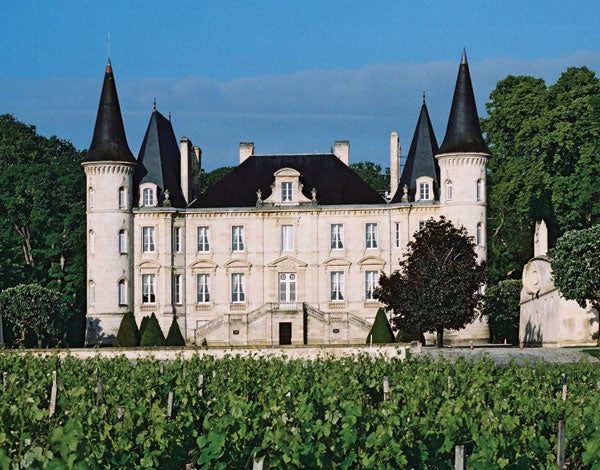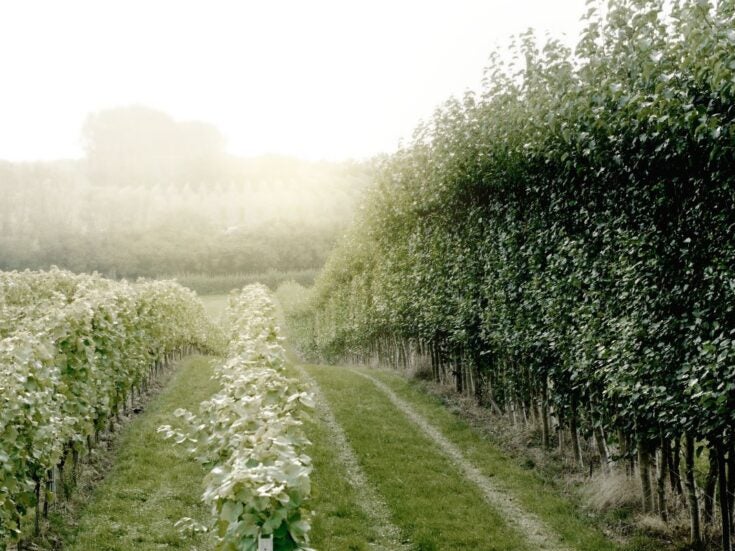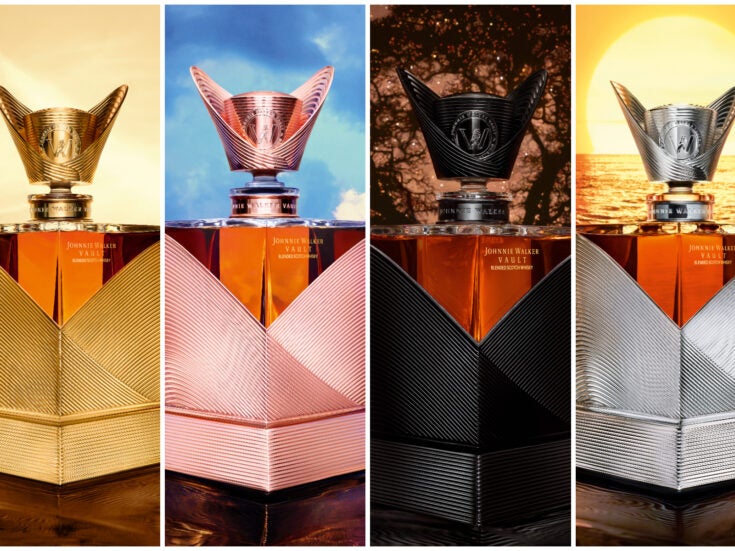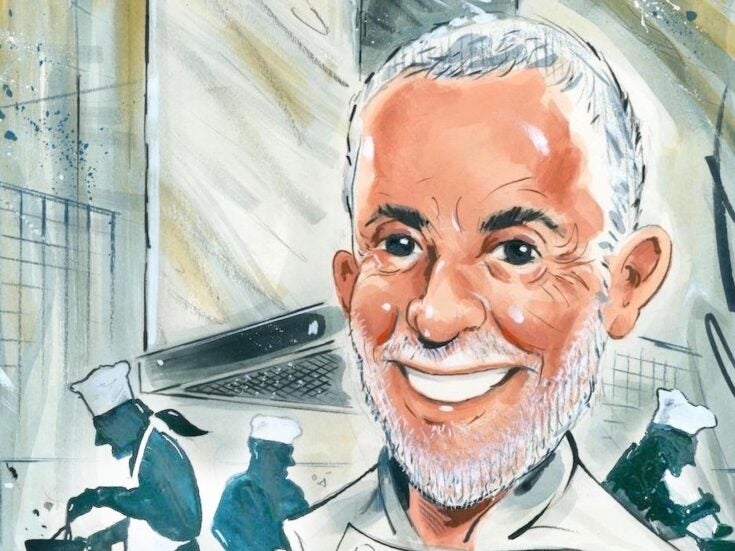

Above: Château Pichon Longueville Baron, whose 1996 wine is ‘in its prime’
It was a simple summer lunch à deux with my old mate Peter Grogan — cold fillet of beef, cucumber salad, celeriac remoulade and hot new potatoes. Easy yet delicious. But what made it work so beautifully was the excellent bottle — well, pair of bottles — we washed the grub down with. Not an eye-wateringly expensive first growth — it wasn’t that type of lunch — but a modestly priced, twelve-year-old Cru Bourgeois of some style.
When Peter isn’t dealing in rare books, he’s snuffling about for vinous bargains, and in our 2003 Château Malescasse from Majestic he had found an absolute charmer perfect for the occasion: soft, mellow, smooth and not even fifteen quid a bottle. The main point, though, was not its price but the fact that it was fully mature and at its best.
We drink claret far too young, as a rule. And even though the concept of buying en primeur has taken a bashing recently and is somewhat tarnished thanks to the arrogance and greed of the Bordelais and a none-too-brilliant vintage in 2013, some of us do continue to buy claret this way, tying up our dosh for years and then drinking the wine too early anyway.
Sometimes it pays to go back. Jamie Graham of Fine & Rare reports that its customers are increasingly shying away from en primeur and looking at back vintages which often offer better value for money. ‘We are seeing particular interest in the top years such as 1986, 1989, 1990, 1995, 1996 and 2000,’ he says. ‘And this year we expect the 2014 en primeur campaign to account for barely 5 per cent of our turnover.’
Graham points out that Fine & Rare is offering 1998 Château Léoville Barton at £68 a bottle and the 2010 at £75 a bottle. Given that the former is in cracking form and eminently drinkable now and the latter is closed and reticent and needs at least another eight to ten years to open up, I know which I would rather have right now, and Graham agrees. After all, why fork out top dollar for new or recent releases such as the very good but not exceptional 2014 when one can buy older, better vintages that are ready (or ready-ish) to drink more cheaply? As Jason Yapp of Yapp Bros puts it, ‘It’s completely topsy-turvy and just doesn’t stack up. It’s like the Dutch tulip bulb bubble in the 17th century: completely bonkers.’
At least 80 per cent of wine bought in the UK is drunk within 24 hours of purchase. Few modern households have any proper storage space and the concept of ageing one’s wine is becoming a thing of the past. But I would argue that even the simplest of petits châteaux or Côtes du Rhônes benefits from a year or so’s cellaring. Keep it in a cupboard under the stairs or store it professionally with a wine merchant, where current rates are about £12 a case per year.
But those of us blessed with decent storage space should delight in seeing how the wine develops over the months, even the years. You might try a bottle now and find it too young. In six months’ time it will be slightly softer and more approachable, and so on until you eventually reach the final bottle, which should be at its peak. As my old boss, Simon Berry, is wont to say, ‘That’s why the good lord put twelve bottles in a case.’
Six of the best wines to buy now
2003 Château Malescasse
£19.99 (or £13.32 if you buy two or more as part of a mixed half-dozen); Majestic
An absolute bargain, a fully mature Cru Bourgeois claret from the Haut-Médoc that’s ideal as an everyday quaffing wine. There’s nothing not to like. It’s concentrated, lively and fruity with enticing aromas of cassis and cedarwood and slips down a treat. For sure, it’s not a first growth — it doesn’t pretend to be — but it’s deeply pleasing and from a great vintage.
1990 Bollinger Grande Année
£150; Cadman Fine Wines
Bollinger’s current vintage is the magnificent 2005, released earlier this year. A precocious wine, it is even more forward than the previous release, the 2002, vintage champagnes being produced only in exceptional years. The 1990 (as drunk by James Bond) is stunning. Although ready to drink the moment it hit the market — unlike any top claret, Rhône or Burgundy — it has developed extra complexity in the intervening years, its Pinot Noir-led, 95 per cent Grand Cru, oak-fermented fruit taking on notes of cream, honey, toast, almonds, vanilla, biscuits and even earthy, forest-floor mushroom.
1975 Château Doisy-Daëne
£68.50; Berry Bros & Rudd
A truly mouth-watering, lip-smacking, fully mature Barsac of impeccable pedigree. It might just be teetering on the brink, but there’s life in the old dog yet and it’s a rare pleasure to be able to find and drink a sweet wine of such great age in such great condition.
Berrys bought the stock direct from the château last year and its provenance is thus unimpeachable. Remarkably intense and concentrated, it still boasts buckets of complex dried fruit and is perfect on its own or with slivers of hard cheese such as aged Gouda or Mimolette très vieille.
1996 Château Pichon-Baron
£1,100 per dozen bottles in bond; Goedhuis & Co
I’m a huge fan of Pichon-Baron, the celebrated 2ème Cru Classé from Pauillac, and was fascinated to taste the sublime 2005 and 2009 vintages at a recent lunch with Christian Seely, MD of AXA Millésimes, owner of Pichon. Both wines were in excellent health, but they are mere adolescents. The 1996, another fabulous vintage, is in its prime and drinking superbly well. Its vibrant purple colour belies its age, whereas the soft velvety tannins hint at it. With tobacco, leather, autumnal dark fruits and touch of spice, it’s madly seductive.
1990 Château Cheval Blanc
£616 per bottle in bond; Fine & Rare
One of those exquisite desert island wines that is once tasted and never forgotten. 1990 was a stellar vintage in Bordeaux, and although this will continue to evolve happily for another twenty or even 30 years, at 25 years old it’s more than ready to be enjoyed now. In fact, it begs to be opened and drunk. The château itself regards the wine as ‘irresistibly delicious’, and it’s hard to disagree with its silky smooth tannins and notes of old leather, cigar boxes, mushrooms, truffles, plums, prunes and a touch of something savoury
2004 Domaine de Trévallon Rouge
£50; Yapp Bros
Domaine de Trévallon, in Les Baux-de-Provence, 30km south of Avignon, has a remarkable reputation. Thanks to the fact that it’s made from Cabernet Sauvignon (in equal parts with Syrah), instead of local varieties such as Grenache, Carignan and Mourvèdre, Trévallon is designated a humble vin de pays. Canny consumers see it differently, however, and it’s hugely sought-after, with shades of Sassicaia and the so-called ‘Super Tuscans’. The 2004 is excellent value and is hitting the straps beautifully with rich, ripe blackcurrant notes from the Cabernet and spicy, inky, intense blackberries from the Syrah.







